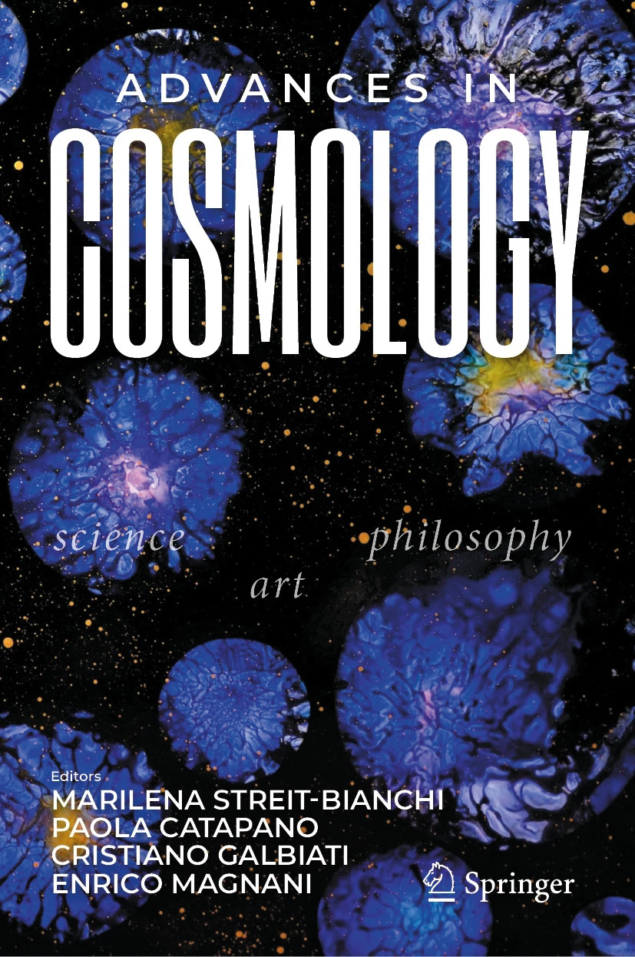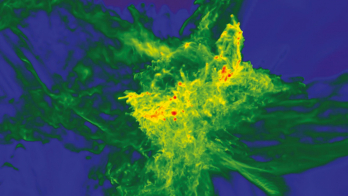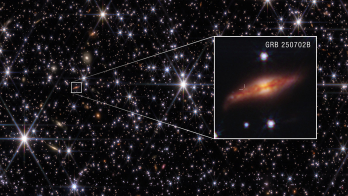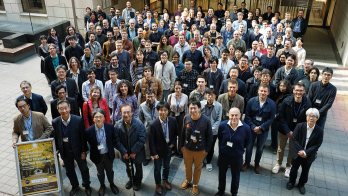Advances in Cosmology, edited by M Streit-Bianchi, P Catapano, C Galbiati and E Magnani, Springer-Verlag

On the 30th anniversary of the discovery of weak neutral currents, the architects of the Standard Model of strong and electroweak interactions met in the CERN main auditorium on 16 September 2003 to debate the future of high-energy physics. During the panel discussion, Steven Weinberg repeatedly propounded the idea that cosmology is part of the future of high-energy physics, since cosmology “is now a science” as opposed to a mere theoretical framework characterised by diverging schools of thought. Twenty years later, this viewpoint may serve as a summary of the collection of articles in Advances in Cosmology.
The papers assembled in this volume encompass the themes that are today associated with the broad domain of cosmology. After a swift theoretical section, the contributions range from dark-matter searches (both at the LHC and in space) to gravitational waves and optical astronomy. The last two sections even explore the boundaries between cosmology, philosophy and artistic intuition. Indeed, as former CERN Director-General Rolf Heuer correctly puts it in his thoughtful foreword, the birth of quantum mechanics was also a philosophical enterprise: both Wolfgang Pauli and Werner Heisenberg never denied their Platonic inspiration and reading Timaeus (the famous Plato dialogue dealing with the origin and purpose of the universe) was essential for physicists of that generation to develop their notion of symmetry (see, for instance, Heisenberg’s 1969 book Physics and Beyond).
In around 370 pages, the editors of Advances in Cosmology manage to squeeze in more than two millennia of developments ranging from Pythagoras to the LHC, and for this reason the various contributions clearly follow different registers. Interested readers will not only find specific technical accounts but also the wisdom of science communicators and even artists. This is why the complementary parts of the monograph share the same common goals, even if they are not part of the same logical line of thinking.
Advances in Cosmology appeals to those who cherish an inclusive and eclectic approach to cosmology and, more generally, to modern science. While in the mid 1930s Edwin Hubble qualified the frontier of astronomy as the “realm of the nebulae”, modern cosmology combines the microscopic phenomena of quantum mechanics with the macroscopic effects of general relativity. As this monograph concretely demonstrates, the boundaries between particle phenomenology and the universe’s sciences are progressively fading away. Will the next 20 years witness only major theoretical and experimental breakthroughs, or more radical changes of paradigm? From the diverse contributions collected in this book, we could say, a posteriori, that scientific revolutions are never isolated as they need environmental selection rules that come from cultural, technological and even religious boundary conditions that cannot be artificially manufactured. This is why paradigm shifts are often difficult to predict and only recognised well after their appearance.








